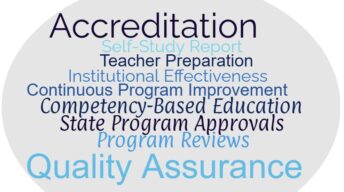Due to COVID-19, education in the United States has been turned on its ear, and it may be time to seriously consider the competency-based education model for K-12 and collegiate levels. For example:
- Students, parents, and school officials have endured sudden school closures as well as a mad scramble to convert to online learning platforms.
- Most states have opted to cancel high-stakes K-12 achievement tests.
- Several colleges are eliminating the ACT or SAT requirement for entrance in the fall.
- Some state departments of education are temporarily forgiving student teaching and licensure examination requirements for pre-service teachers who are slated to graduate from college this year so they can land jobs in the fall as fully certified teachers.
- Several schools have decided not to award letter grades of D or F but opted instead for a Credit or No Credit scale.
Fall 2020 Faces Uncertainty
Higher education institutions such as the University of California and Harvard have already stated they likely won’t reopen the doors in the fall, with many more to decide after June 1. At the K-12 level, school district officials will strive to hold classes onsite, but the reality is that we simply don’t know what the 2020-2021 school year will look like, or for any school years in the near future for that matter.
Status Quo No Longer Fits
Educators have structured our American way of learning to fit a time-based model. By and large, students attend classes, make passing grades, and then they move on. With a few exceptions, everyone in a class moves forward together at the same pace. Because of COVID-19, educators need to re-think how students learn and how their learning should be measured. The competency-based educational model is worth serious consideration.
Competency-Based Education: Not Easier, Just Different
Competency-based education isn’t an easier way to learn or to earn a college degree–it’s just different. Rather than just sitting in a class and earning attendance points, learners really have to demonstrate what they know and are able to do through high-quality assessments. That approach doesn’t water-down expectations–in fact, it’s quite the opposite.
Carefully Built on Solid Curriculum
Competency-based education is standards-based education. A house must have a solid foundation in order to stand over time. Likewise, curriculum must be based on standards. From those standards educators create competencies, learning objectives, and assessments. As industry standards change, school faculty must ensure relevancy and currency.
Competency-based education is carefully planned and developed. It is not a simple matter of schools deciding on a whim to switch to a CBE model. Faculty, administrators, and curriculum directors must give a great deal of thought and planning to the process. Simply put, it is not realistic for administrators to believe one or two faculty members can tackle a project of this magnitude. It requires systemic commitment and long-range strategic planning.
Self-Paced Learning is Essential Right Now
Self-paced learning is a cornerstone of the CBE model. Educators now acknowledge that lockstep teaching and learning does not meet the needs of individuals. This approach neglects the needs of students who are struggling, and it neglects the needs of students who have already mastered those skills and are ready to move on. One of the best aspects of competency-based education is that it is based on a self-paced learner model: Students work at their own pace, taking as much or as little time as they need to understand, apply, and demonstrate their proficiency in the stated competencies and learning objectives. Learners are less frustrated; they feel empowered and more in control of their own progress. Plus, CBE isn’t limited to a particular age group or grade level; it works equally well with elementary students as it does with those working on their doctorate.
Competency-Based Education and Online Learning
The competency-based model lends itself well to online learning. CBE certainly can work well in traditional face-to-face learning environments. However, it can work equally well in distance learning models. There are different nuances to consider in the planning stage, but educators can build CBE to fit all learning environments.
Assessment Quality is Paramount
The quality of a competency-based program is heavily reliant upon the quality of its assessments. In a competency-based model, learners demonstrate what they know and are able to do relative to specific learning objectives. They demonstrate this through a variety of high-quality assessments, frequently in the form of internally-created objective examinations, performance assessments, field-based assessments, and proprietary assessments. If the curriculum is the home’s foundation and instruction serves as the walls, then assessments represent the roof.
Competency-Based Education: It’s Time to Take the Next Step.
Competency-based education is NOT a shortcut nor an easy fix to serious school challenges during this difficult time. It’s also not a short-term solution but one that requires a long-term commitment. However, if educators design it carefully the CBE model can be a powerful way to increase student learning, achievement, and satisfaction. It’s time for them to take the next step.
###
About the Author: Dr. Roberta Ross-Fisher has expertise in higher education quality assurance, educator preparation, and competency-based education (CBE). A former public school teacher and college administrator, Roberta is now an educational consultant specializing in the Council for the Accreditation of Educator Preparation (CAEP) and CBE.
Twitter: @RRossFisher
Email: globaleducationalconsulting@gmail.com
Top Graphic Credit: Annie Spratt




